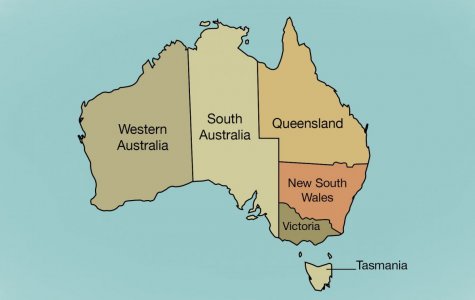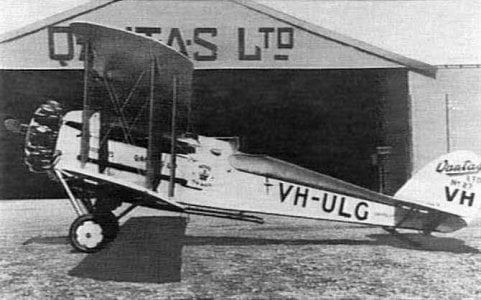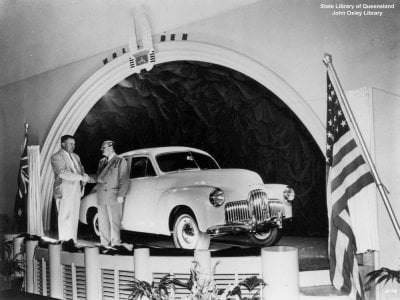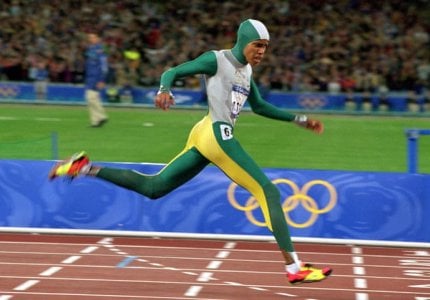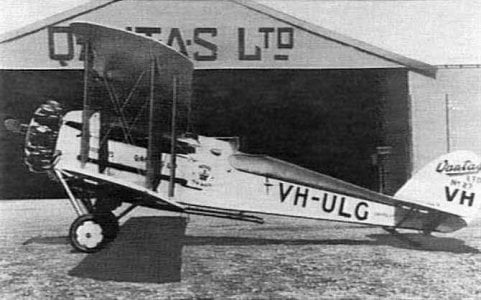21 of the most historic moments in Australian history since Federation
- Replies 12
Okay, before we begin, I'm going to admit straight up that this one is likely to be a contentious article. One person's idea of a historic moment is likely to be different from another's. With that said, I've given my best shot at compiling a list of what I believe to be the 21 of the most historic moments in Australian history since Federation - some 121 years ago. Not all of these 'moments' are positive, either, but they are all undeniably significant.
1. Federation & the first federal election (1901)
This is the big one, of course. The moment when Australia officially became a nation. On January 1, 1901, the six Australian colonies came together to form the Commonwealth of Australia. It was a momentous achievement, and one that would lay the foundations for the country we know today.
The first federal election was held in March 1901 (the first Australian prime minister, Edmund Barton, was sworn in), just two months after Federation.
2. Women gain the right to vote (1902)
While women in Australia had been campaigning for the right to vote for many years, it wasn't until 1902 that they finally achieved success. The Commonwealth Franchise Act was passed, giving all women over the age of 21 the right to vote in federal elections.
It would be another decade before women gained the right to stand for parliament, but this was a significant step forward for gender equality in Australia.
3. World War I (1914-1918)
Australia's involvement in World War I was a defining moment in our history. Over 60,000 Australians lost their lives in the conflict, and the war had a profound impact on the country both domestically and internationally.
The Gallipoli campaign was a particularly significant event, not only for the loss of life but also for the way it shaped Australia's national identity. ANZAC Day, commemorating the Australian and New Zealand soldiers who served in the war, is now one of our most important national days.
4. The first Qantas flight (1922)
On 2 November 1922, Qantas began its first regular airmail and passenger service, between Cloncurry and Charleville. It was a significant moment in Australia's aviation history, and Qantas went on to become one of the world's leading airlines.
5. The Great Depression (1929-1932)
The Great Depression was a global economic crisis that had a devastating impact on Australia. One-quarter of the workforce was unemployed at its peak, and many people were forced to live in desperate poverty.
The Great Depression shaped Australia's economic and social policies for many years to come, and its legacy can still be felt today.
6. The Sydney Harbour Bridge opens (1932)
The Sydney Harbour Bridge is one of Australia's most iconic landmarks, and its opening in 1932 after 7 years of construction was a major moment in Australian history. The bridge was built at a time when Australia was still recovering from the Great Depression, and its opening was a symbol of the country's growing prosperity. The bridge remains an important part of Sydney's transport infrastructure today.
7. World War II (1939-1945)
Australia's involvement in World War II is another defining moment in our history. Over 70,000 Australians lost their lives in the conflict. The war had a lasting impact on national and international relations, as well as day-to-day life.
The Kokoda campaign was a particularly significant event, not only for the loss of life but also for the way it shaped Australia's national identity.
8. The first Holden car is produced (1948)
The first Holden car, the 48-215, was produced in 1948, and it quickly became an Australian icon. The Holden was affordable, reliable and, most importantly, it was made in Australia. The company went on to become one of the country's leading manufacturers, and Holden remains an iconic part of Australia's automotive history.
Sadly, Holden ceased production in Australia in 2017, but the company's legacy will live on for many years to come.
9. The Melbourne Olympics & Colour TV (1956)
The 1956 Summer Olympics, held in Melbourne, were the first Olympics to be held in the Southern Hemisphere. They were also the first Olympics to be televised, and they showcased Australia to the world.
The Melbourne Olympics was a major moment in Australian history, and put the country on the global stage.
As a little bonus for 1956, the first Australian television broadcast took place on 16 September of that year. The event was watched by millions of Australians, and it changed the way we communicate and consume information forever.
10. Indigenous Australians receive the right to vote (1965)
The right of Indigenous Australians to vote was finally recognised in 1965, after a long and hard-fought campaign by activists and Aboriginal leaders.
This was a major step forward for Indigenous rights in Australia and paved the way for further advances in the years to come. The right to vote was a symbol of equality and citizenship, and it was a historic moment for Australia as a whole.
11. The disappearance of Harold Holt (1967)
The disappearance of Prime Minister Harold Holt while swimming at a beach in Victoria was a shock to the nation. His body was never found, and the circumstances surrounding his death remain a mystery to this day, with one bizarre but persistent conspiracy theory stating that he faked his death to defect to China and was picked up by a Chinese submarine!
Holt's disappearance was a turning point in Australian politics, and his death is still mourned by many Australians. It is one of the most enduring mysteries in Australian history.
12. The Sydney Opera House opens (1973)
The Sydney Opera House is another of Australia's iconic landmarks, and its opening in 1973 was a major moment in Australian history. The Opera House was designed by Danish architect Jørn Utzon, and it took more than 20 years to build.
The Opera House is now one of the most recognisable buildings in the world and it is a symbol of Australia's growing prosperity.
13. Dismantling the White Australia Policy (1973)
In the same year, the final dismantling of the White Australia Policy was a turning point in Australia's history. The policy had been in place since Federation, and its repeal marked a major shift in Australia's attitude towards race.
The policy's repeal was a victory for multiculturalism and paved the way for Australia to become the culturally diverse country it is today. It was also a major step forward for human rights in Australia.
14. Cyclone Tracy hits Darwin (1974)
Cyclone Tracy was a tropical cyclone that hit Darwin on Christmas Eve 1974. The cyclone caused widespread damage and loss of life, and it remains the deadliest cyclone in Australian history. Tracy killed 71 people and caused A$837 million in damage (1974 dollars), or approximately A$7.2 billion (2022 dollars). It destroyed more than 70 per cent of Darwin's buildings, including 80 per cent of houses.
The cyclone had a profound impact on the people of Darwin, and it changed the city forever.
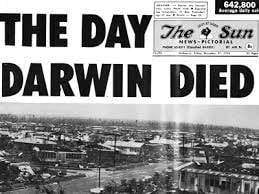
Cyclone Tracy was one of the most powerful weather events on record and absolutely decimated Darwin. Source: Television AU
15. Gough Whitlam is dismissed as Prime Minister (1975)
Whether you agreed with his politics or not, Gough Whitlam's dismissal as Prime Minister by Governor-General Sir John Kerr in 1975 was an unprecedented occurrence. The event sparked widespread protests and remains a highly polarising topic in Australian politics, even to this day.
Whitlam is the only Prime Minister in Australian history to have been removed from office in this way, and had a profound impact on Australian society, with many people feeling that the dismissal represented a betrayal of democracy.
1975 was also the first year universal health care was introduced in Australia (by the Whitlam Government). It was originally known as ‘Medibank’ and was later renamed ‘Medicare’ by the Hawke Government in 1984.
16. Port Arthur massacre (1996)
The Port Arthur massacre was a mass shooting that occurred at the historic site of Port Arthur in Tasmania on 28 April 1996. The shooter, Martin Bryant, killed 35 people and wounded 23 others, making it the deadliest mass shooting in Australian history.
The massacre had a profound impact on Australia, leading to the introduction of strict gun control laws. It also brought the issue of gun violence into the national spotlight and sparked a debate about the role of guns in Australian society.
17. The Sydney Olympics (2000)
The Sydney 2000 Olympic Games were a defining moment in Australian history. Not only were they the second time the Olympics were held in the Southern Hemisphere (the first being Melbourne in 1956), but they were also a massive success, with Australia winning a total of 58 medals.
The games were a coming of age for Australia and cemented the country's place on the world stage. They also had a lasting impact on the city of Sydney, with many of the sporting venues and infrastructure still in use today.
In a moment that united the nation, Australian sprinter Cathy Freeman won gold in the 400m final, becoming the first Aboriginal athlete to win an Olympic gold medal.
18. The Bali bombings (2002)
The Bali bombings were a series of terrorist attacks that occurred in Bali, Indonesia, on 12 October 2002. The attacks killed 202 people, including 88 Australians, and injured over 300 others.
Unlike the other items on the list, this one didn’t happen on Australian territory, but the bombings were the deadliest terrorist attack in Australian history and had a profound impact on the country. They also brought the issue of terrorism into the national spotlight and led to a strengthening of Australia's anti-terrorism laws.
19. Apology to Australia's Indigenous Peoples (2008)
In 2008, Prime Minister Kevin Rudd made a historic apology to Australia's Indigenous Peoples for the injustices they have suffered throughout history. The apology was a moment of healing and reconciliation and marked a new era in relations between Indigenous and non-Indigenous Australians.
20. Julia Gillard becomes Australia's first female Prime Minister (2010)
Julia Gillard made history in 2010 when she became Australia's first female Prime Minister. Gillard was a groundbreaking leader who proved that women could succeed at the highest levels of politics.
Gillard's time as Prime Minister was marked by controversy and she was ultimately ousted by her own party. Nevertheless, she made history and inspired women across Australia.
21. Australia votes in favour of same-sex marriage (2017)
Australia's vote in favour of same-sex marriage in 2017 was a historic moment for the LGBTQIA+ community. The vote was a resounding show of support for equality and marked a major shift in public opinion on the issue.
Same-sex marriage is now legal in Australia, and the country is seen as a leader in LGBTQIA+ rights. The vote was also a victory for democracy, with the Australian people overwhelmingly rejecting a government attempt to deny them a say on the issue.
So folks, what do you think of my list? Do you agree with my choices? What would you add or remove?
1. Federation & the first federal election (1901)
This is the big one, of course. The moment when Australia officially became a nation. On January 1, 1901, the six Australian colonies came together to form the Commonwealth of Australia. It was a momentous achievement, and one that would lay the foundations for the country we know today.
The first federal election was held in March 1901 (the first Australian prime minister, Edmund Barton, was sworn in), just two months after Federation.
2. Women gain the right to vote (1902)
While women in Australia had been campaigning for the right to vote for many years, it wasn't until 1902 that they finally achieved success. The Commonwealth Franchise Act was passed, giving all women over the age of 21 the right to vote in federal elections.
It would be another decade before women gained the right to stand for parliament, but this was a significant step forward for gender equality in Australia.
3. World War I (1914-1918)
Australia's involvement in World War I was a defining moment in our history. Over 60,000 Australians lost their lives in the conflict, and the war had a profound impact on the country both domestically and internationally.
The Gallipoli campaign was a particularly significant event, not only for the loss of life but also for the way it shaped Australia's national identity. ANZAC Day, commemorating the Australian and New Zealand soldiers who served in the war, is now one of our most important national days.
4. The first Qantas flight (1922)
On 2 November 1922, Qantas began its first regular airmail and passenger service, between Cloncurry and Charleville. It was a significant moment in Australia's aviation history, and Qantas went on to become one of the world's leading airlines.
5. The Great Depression (1929-1932)
The Great Depression was a global economic crisis that had a devastating impact on Australia. One-quarter of the workforce was unemployed at its peak, and many people were forced to live in desperate poverty.
The Great Depression shaped Australia's economic and social policies for many years to come, and its legacy can still be felt today.
6. The Sydney Harbour Bridge opens (1932)
The Sydney Harbour Bridge is one of Australia's most iconic landmarks, and its opening in 1932 after 7 years of construction was a major moment in Australian history. The bridge was built at a time when Australia was still recovering from the Great Depression, and its opening was a symbol of the country's growing prosperity. The bridge remains an important part of Sydney's transport infrastructure today.
7. World War II (1939-1945)
Australia's involvement in World War II is another defining moment in our history. Over 70,000 Australians lost their lives in the conflict. The war had a lasting impact on national and international relations, as well as day-to-day life.
The Kokoda campaign was a particularly significant event, not only for the loss of life but also for the way it shaped Australia's national identity.
8. The first Holden car is produced (1948)
The first Holden car, the 48-215, was produced in 1948, and it quickly became an Australian icon. The Holden was affordable, reliable and, most importantly, it was made in Australia. The company went on to become one of the country's leading manufacturers, and Holden remains an iconic part of Australia's automotive history.
Sadly, Holden ceased production in Australia in 2017, but the company's legacy will live on for many years to come.
9. The Melbourne Olympics & Colour TV (1956)
The 1956 Summer Olympics, held in Melbourne, were the first Olympics to be held in the Southern Hemisphere. They were also the first Olympics to be televised, and they showcased Australia to the world.
The Melbourne Olympics was a major moment in Australian history, and put the country on the global stage.
As a little bonus for 1956, the first Australian television broadcast took place on 16 September of that year. The event was watched by millions of Australians, and it changed the way we communicate and consume information forever.
10. Indigenous Australians receive the right to vote (1965)
The right of Indigenous Australians to vote was finally recognised in 1965, after a long and hard-fought campaign by activists and Aboriginal leaders.
This was a major step forward for Indigenous rights in Australia and paved the way for further advances in the years to come. The right to vote was a symbol of equality and citizenship, and it was a historic moment for Australia as a whole.
11. The disappearance of Harold Holt (1967)
The disappearance of Prime Minister Harold Holt while swimming at a beach in Victoria was a shock to the nation. His body was never found, and the circumstances surrounding his death remain a mystery to this day, with one bizarre but persistent conspiracy theory stating that he faked his death to defect to China and was picked up by a Chinese submarine!
Holt's disappearance was a turning point in Australian politics, and his death is still mourned by many Australians. It is one of the most enduring mysteries in Australian history.
12. The Sydney Opera House opens (1973)
The Sydney Opera House is another of Australia's iconic landmarks, and its opening in 1973 was a major moment in Australian history. The Opera House was designed by Danish architect Jørn Utzon, and it took more than 20 years to build.
The Opera House is now one of the most recognisable buildings in the world and it is a symbol of Australia's growing prosperity.
13. Dismantling the White Australia Policy (1973)
In the same year, the final dismantling of the White Australia Policy was a turning point in Australia's history. The policy had been in place since Federation, and its repeal marked a major shift in Australia's attitude towards race.
The policy's repeal was a victory for multiculturalism and paved the way for Australia to become the culturally diverse country it is today. It was also a major step forward for human rights in Australia.
14. Cyclone Tracy hits Darwin (1974)
Cyclone Tracy was a tropical cyclone that hit Darwin on Christmas Eve 1974. The cyclone caused widespread damage and loss of life, and it remains the deadliest cyclone in Australian history. Tracy killed 71 people and caused A$837 million in damage (1974 dollars), or approximately A$7.2 billion (2022 dollars). It destroyed more than 70 per cent of Darwin's buildings, including 80 per cent of houses.
The cyclone had a profound impact on the people of Darwin, and it changed the city forever.

Cyclone Tracy was one of the most powerful weather events on record and absolutely decimated Darwin. Source: Television AU
15. Gough Whitlam is dismissed as Prime Minister (1975)
Whether you agreed with his politics or not, Gough Whitlam's dismissal as Prime Minister by Governor-General Sir John Kerr in 1975 was an unprecedented occurrence. The event sparked widespread protests and remains a highly polarising topic in Australian politics, even to this day.
Whitlam is the only Prime Minister in Australian history to have been removed from office in this way, and had a profound impact on Australian society, with many people feeling that the dismissal represented a betrayal of democracy.
1975 was also the first year universal health care was introduced in Australia (by the Whitlam Government). It was originally known as ‘Medibank’ and was later renamed ‘Medicare’ by the Hawke Government in 1984.
16. Port Arthur massacre (1996)
The Port Arthur massacre was a mass shooting that occurred at the historic site of Port Arthur in Tasmania on 28 April 1996. The shooter, Martin Bryant, killed 35 people and wounded 23 others, making it the deadliest mass shooting in Australian history.
The massacre had a profound impact on Australia, leading to the introduction of strict gun control laws. It also brought the issue of gun violence into the national spotlight and sparked a debate about the role of guns in Australian society.
17. The Sydney Olympics (2000)
The Sydney 2000 Olympic Games were a defining moment in Australian history. Not only were they the second time the Olympics were held in the Southern Hemisphere (the first being Melbourne in 1956), but they were also a massive success, with Australia winning a total of 58 medals.
The games were a coming of age for Australia and cemented the country's place on the world stage. They also had a lasting impact on the city of Sydney, with many of the sporting venues and infrastructure still in use today.
In a moment that united the nation, Australian sprinter Cathy Freeman won gold in the 400m final, becoming the first Aboriginal athlete to win an Olympic gold medal.
18. The Bali bombings (2002)
The Bali bombings were a series of terrorist attacks that occurred in Bali, Indonesia, on 12 October 2002. The attacks killed 202 people, including 88 Australians, and injured over 300 others.
Unlike the other items on the list, this one didn’t happen on Australian territory, but the bombings were the deadliest terrorist attack in Australian history and had a profound impact on the country. They also brought the issue of terrorism into the national spotlight and led to a strengthening of Australia's anti-terrorism laws.
19. Apology to Australia's Indigenous Peoples (2008)
In 2008, Prime Minister Kevin Rudd made a historic apology to Australia's Indigenous Peoples for the injustices they have suffered throughout history. The apology was a moment of healing and reconciliation and marked a new era in relations between Indigenous and non-Indigenous Australians.
20. Julia Gillard becomes Australia's first female Prime Minister (2010)
Julia Gillard made history in 2010 when she became Australia's first female Prime Minister. Gillard was a groundbreaking leader who proved that women could succeed at the highest levels of politics.
Gillard's time as Prime Minister was marked by controversy and she was ultimately ousted by her own party. Nevertheless, she made history and inspired women across Australia.
21. Australia votes in favour of same-sex marriage (2017)
Australia's vote in favour of same-sex marriage in 2017 was a historic moment for the LGBTQIA+ community. The vote was a resounding show of support for equality and marked a major shift in public opinion on the issue.
Same-sex marriage is now legal in Australia, and the country is seen as a leader in LGBTQIA+ rights. The vote was also a victory for democracy, with the Australian people overwhelmingly rejecting a government attempt to deny them a say on the issue.
So folks, what do you think of my list? Do you agree with my choices? What would you add or remove?
Attachments
Last edited by a moderator:

